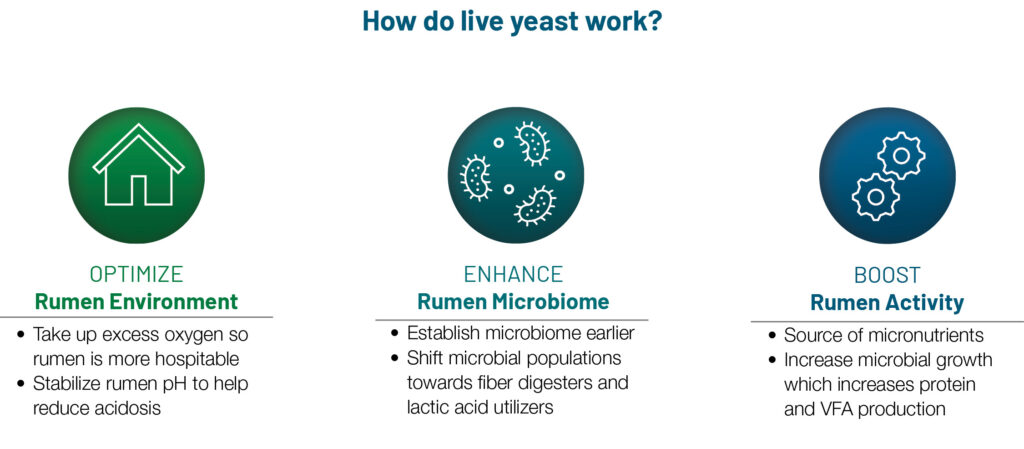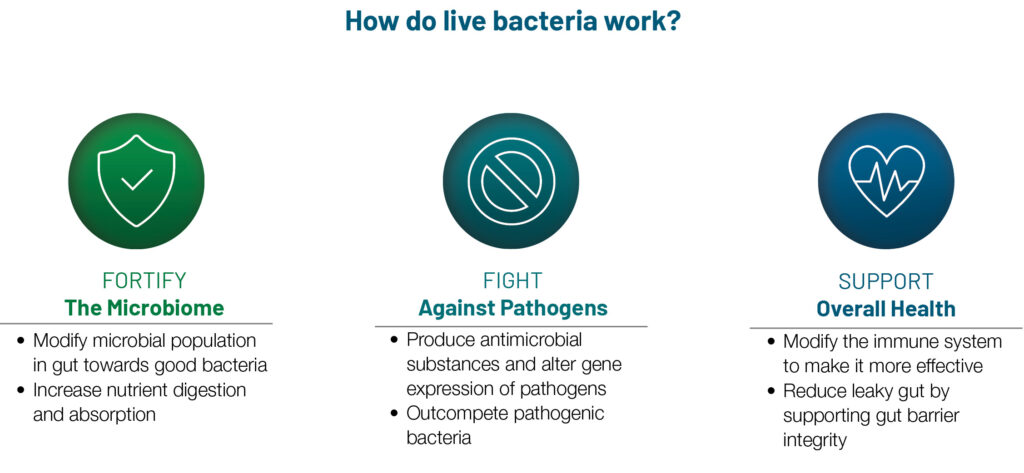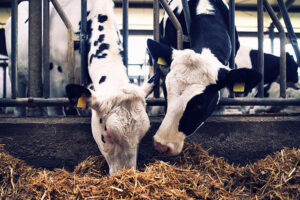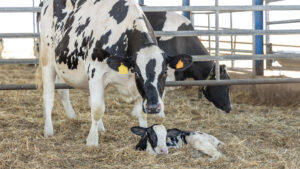On the go and want to download this PAC Fact for later?
Probiotics are live microorganisms that benefit the animal when consumed. Common probiotics used in ruminant diets include live yeast and live bacteria.
How Live Yeast Work
Live yeast improve rumen health and efficiency in three main ways. They optimize the rumen environment, enhance the rumen microbiome, and boost rumen activity.
Optimize the rumen environment. Live yeast take up excess oxygen which makes the rumen more hospitable to rumen microbes. They also stabilize rumen pH, so you’re less likely to have a cow with rumen acidosis.
Enhance the rumen microbiome. Live yeast help establish the rumen microbiome earlier in young calves and alter the microbial populations in mature ruminants. You will primarily see a shift towards more fiber digesting bacteria, as well as lactic acid utilizers.
Boost rumen activity. Live yeast primarily do this by acting as a source of micronutrients for rumen bacteria. This in turn leads to increased microbial growth in the rumen and increased microbial protein and VFA production.

How Live Bacteria Work
Live bacteria have several modes of action that impact gastrointestinal health and immune system function. These include fortifying the microbiome, fighting against pathogens, and supporting overall animal health.
Fortify the microbiome. Live bacteria help modify the microbial population in the gut towards good bacteria. They can also increase nutrient digestion and absorption by supporting rumen papillae and lower gut papillae.
Fight against pathogens. Live bacteria can produce anti-microbial substances, alter gene expression of pathogens, and out compete pathogenic bacteria for space in the gut.
Support overall health. Live bacteria can modify the immune system to make it more effective. They also support gut barrier integrity, which means they can make the lower gut less likely to have leaky gut.

When should probiotics be used?
Probiotics are valuable tools during periods of stress such as transition, dry-off, transportation and weaning. They can also be used to control pathogens such as Clostridium, E. coli, and Salmonella. Feeding probiotics helps support overall rumen health, particularly rumen pH and VFA production, and lower gut health by improving nutrient absorption and reducing symptoms of leaky gut. When fed to young calves, they help establish the microbiome sooner and reduce scours. Probiotics also improve forage utilization by supporting forage digesting bacteria in the rumen.
What are typical responses?
Live Yeast:
- Improved dry matter intake
- Improved milk yield
- Improved milk fat
Live Bacteria:
- Improved milk yield and components
- Improved dry matter intake
- Improved feed efficiency
- Disease reduction
How can you select a probiotic?
- Review bacterial strains and colony forming units (CFU). Strains can have different modes of action in the animal.
- Understand the probiotic selection process. A company should have a comprehensive strain selection process.
- Look for data on probiotic mode of action. A good probiotic will support the animal in a variety of ways.
- Look for data in animals facing stressors. They should cope more effectively than those not fed a probiotic.
To learn more about our customizable solutions or to see how we can help you find the best way forward, contact us.





